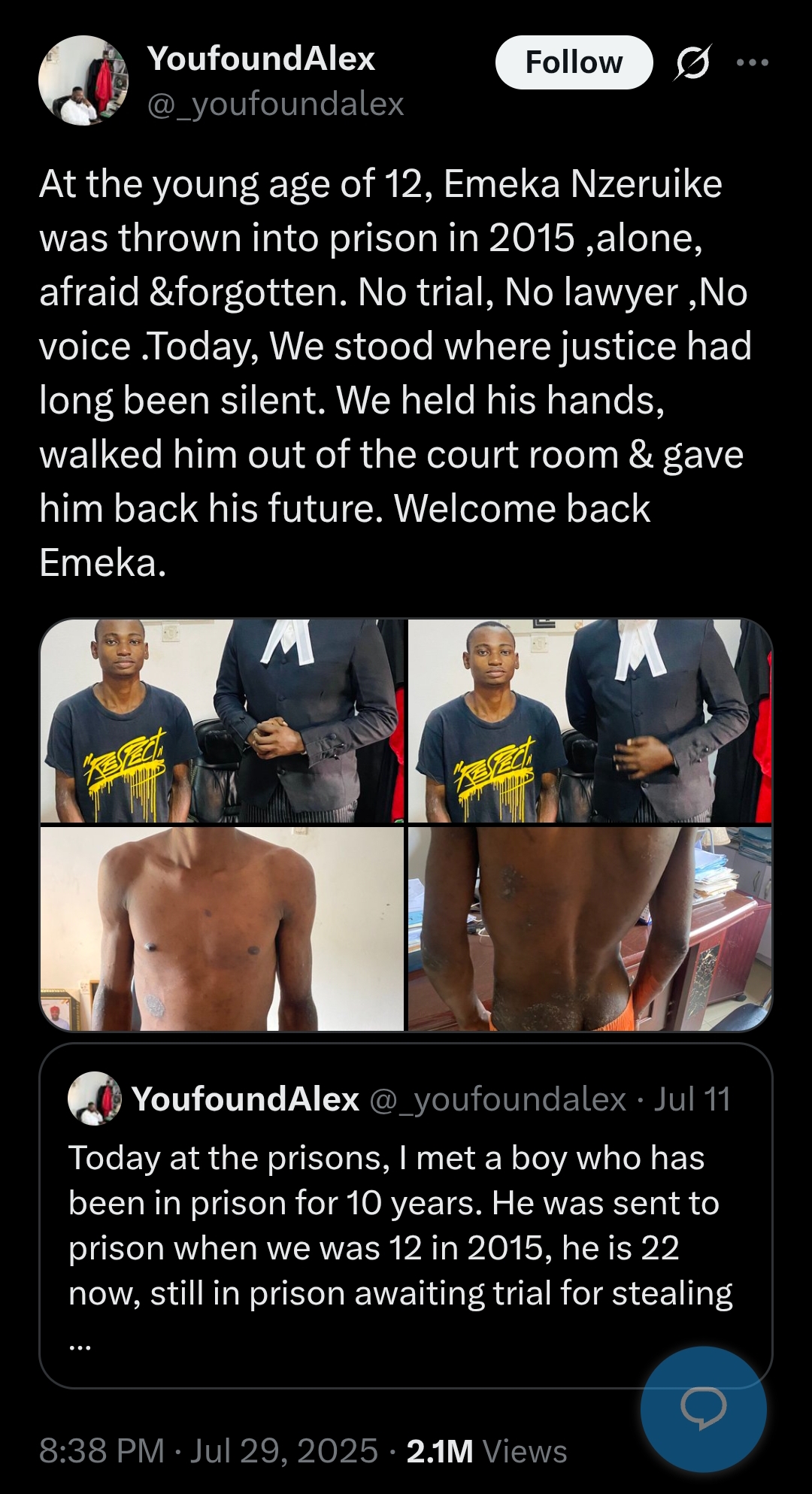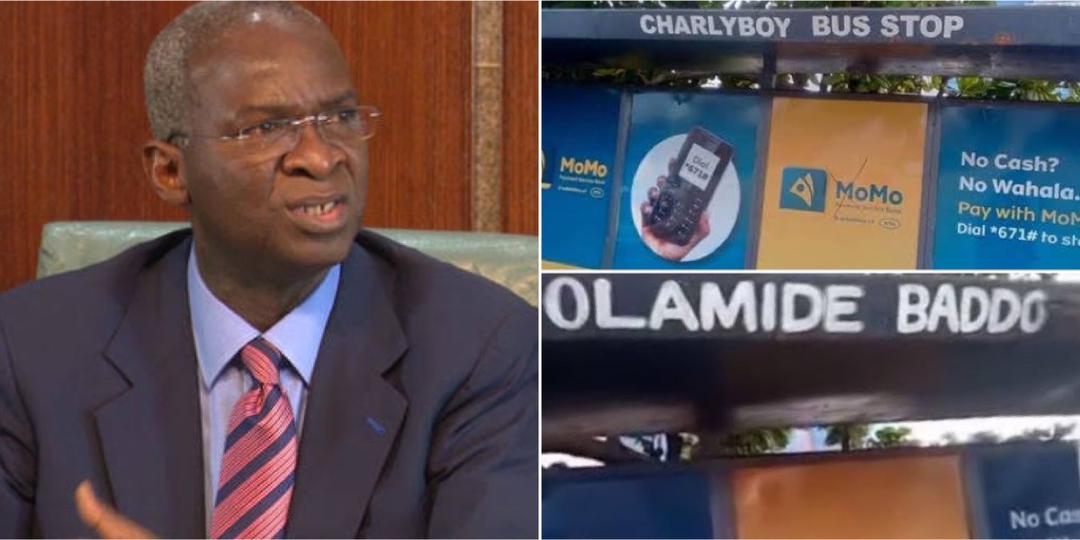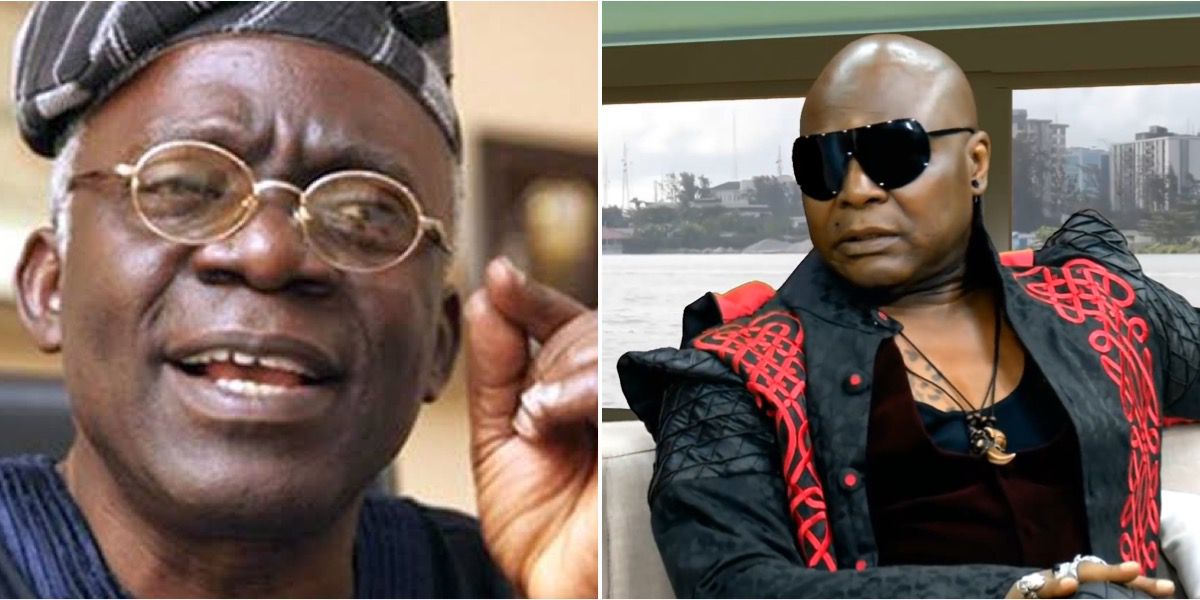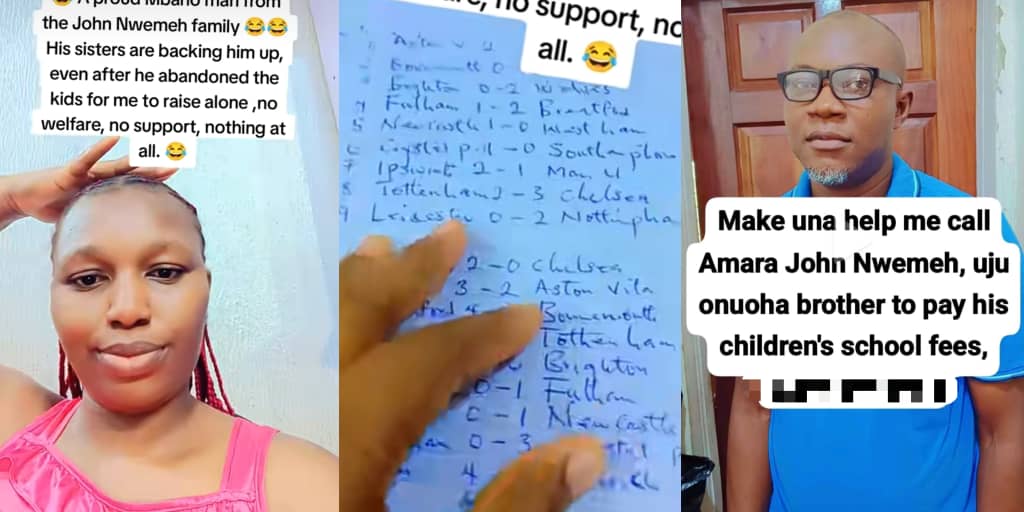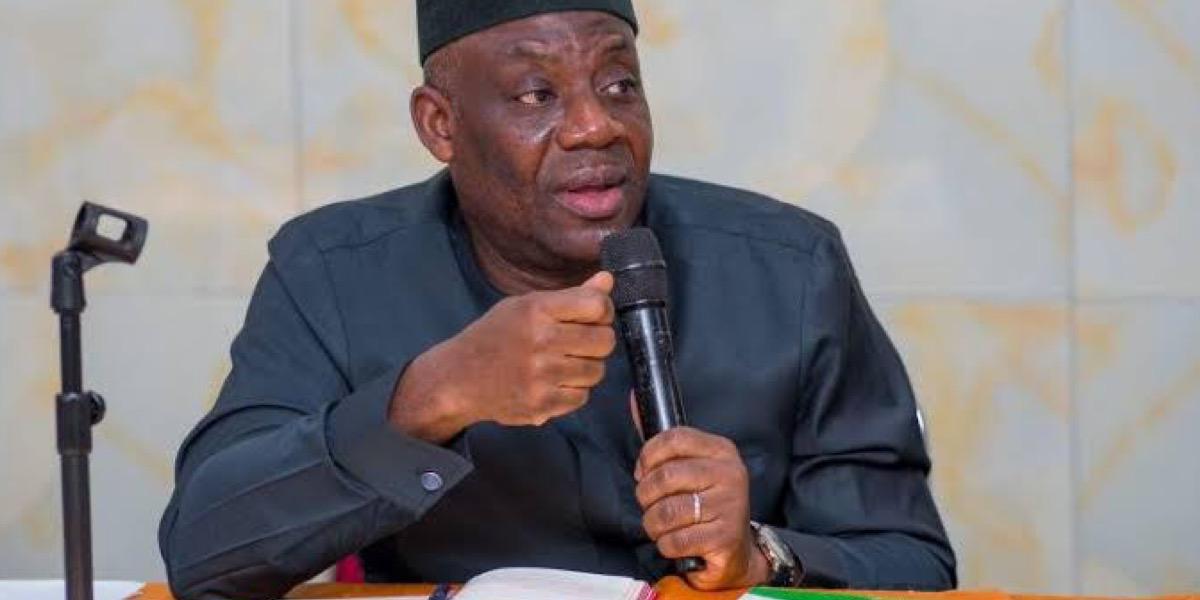Nigerian 12-year-old boy who was arrested in 2015 for allegedly stealing has finally regained his freedom after spending 10 years in prison without trial.
Now 22, the young man was released following legal intervention.
The story was shared on X (formerly Twitter) by user @_youfoundalex, a lawyer, who revealed that the boy, identified as Emeka Nzeruike, had been detained without a lawyer, trial, or any form of legal representation since his arrest.
“Today at the prisons, I met a boy who has been in prison for 10 years. He was sent to prison when he was 12 in 2015. He is 22 now, still in prison awaiting trial for stealing. If I was told this story, I would hardly believe it,” the lawyer wrote.
With the support of his colleagues, the lawyer took legal action and secured Emeka’s release after a decade of wrongful detention.
He added, “At the young age of 12, Emeka Nzeruike was thrown into prison in 2015 alone, afraid, and forgotten. No trial, no lawyer, no voice. Today, we stood where justice had long been silent. We held his hands, walked him out of the courtroom, and gave him back his future. Welcome back, Emeka.”
The post quickly went viral, prompting strong emotional reactions from users who flooded the comment section to express outrage, sympathy, and support.
See some reactions below:
@Kasieobi_1: “Nigeria is such a terrible place to live in or come from.”
@theeayomikun: “Bruhh see ringworm the size of a map all over his body.”
@steveabbey_: “12 years old? Who was the judge or presiding officers in his case? Call them out.”
@OloriOfOloris: “What future is there again. There’s stolen his life and dignity from him. Where does such a person begin to start from ?”
@Ms_Fej: “How do you lock a 12 year old in jail with no emotion? What kind of country is Nigeria fgs.”
@sheddido: “Who is the judge for this boy case? He needs to be sacked or something because this case lacks justice.”
@0xGiddy: “If na be be this boy, na to come out and become a menace to society, fuck school! Fuck rehab!! Y’all ruined my life, now I will ruin everyone’s life.”
@Allezamani: “Nigeria is filled with evil people, a religious person is the judge, the police, the prison warden and so many more, but guess what, none of them cared.”
SEE POST:
